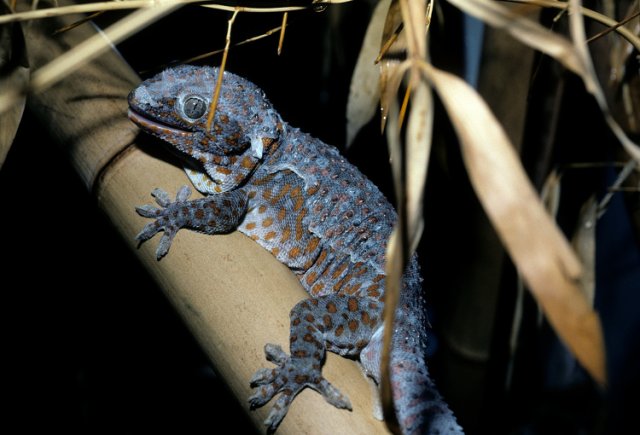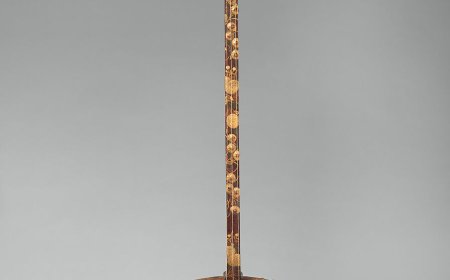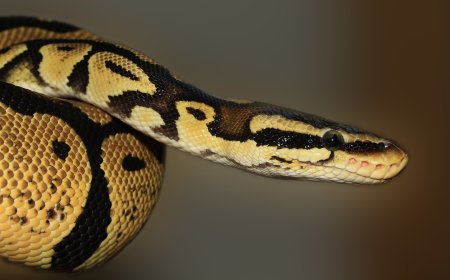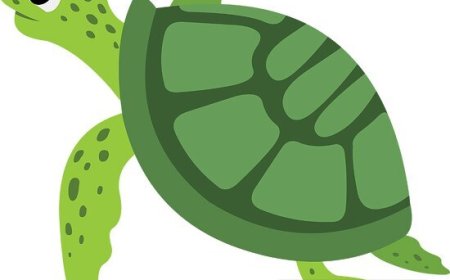Common House Gecko Facts for Kids – The Lizard That Lives with Us
Discover the common house gecko, a small insect-eating lizard often found near homes

Scientific Name and Classification
- Common Name: Common house gecko
- Scientific Name: Hemidactylus frenatus
- Kingdom: Animalia
- Phylum: Chordata
- Class: Reptilia
- Order: Squamata
- Family: Gekkonidae
- Genus: Hemidactylus
- Species: H. frenatus
🦎 Introduction
The common house gecko is a small lizard that lives near people. It hunts insects around lights at night. It has spread to many warm places worldwide.
🦎 Appearance
Small, soft body 3–5 in (7–13 cm) long. Pale gray to brown with small spots. Large eyes with vertical pupils. Toes have pads for climbing walls and glass.
🌍 Habitat
Houses, gardens, sheds, and city walls. Warm tropical and subtropical regions. Hides in cracks by day and hunts at night.
🍽 Diet
Eats moths, mosquitoes, flies, and small roaches. Helps control pests. Uses quick bursts to grab prey near lights.
🔄 Life Cycle
Females lay two small, hard-shelled eggs. They hide eggs in crevices. Eggs hatch in 1–2 months. Young grow fast in warm weather.
🐾 Behavior and Social Structure
Nocturnal and active on walls and ceilings. Males call with chirps. Can drop the tail to escape and grow it back.
🛡 Conservation Status
Not threatened globally. In some areas it is invasive and competes with native geckos. Avoid releasing pets outdoors.
🎭 Cultural Significance
Familiar urban lizard in many countries. Often welcomed for eating bugs. Its chirps are a common nighttime sound.
✨ Fun Facts
- Can cling to smooth glass with toe pads.
- Eyes have no eyelids; it licks them clean.
- Makes chirping calls at night.
- Tail can detach and wriggle to distract predators.
📌 Key Takeaways
- Small nocturnal gecko found near people.
- Great at pest control around lights.
- Lays two hard-shelled eggs in cracks.
- Toe pads allow wall and ceiling climbing.
- Sometimes invasive; protect native species.
🐾 Kid-Friendly Summary
House geckos are tiny lizards that hunt bugs at night. They climb walls and make little chirps. They are helpful but should not be released in new places.
📚 Vocabulary Words
- Nocturnal – Active at night.
- Invasive – A non-native species that causes harm.
- Crest – A raised ridge (some geckos have small ones).
- Crevice – A narrow crack.
- Pest – An animal that bothers people or crops.
- Regenerate – To grow back a lost body part.
- Vertical pupil – A pupil shaped like a slit.
- Toepad – A sticky pad that helps grip surfaces.
🧠 Interactive Quiz: Test Your House Gecko Knowledge
- When is the house gecko most active?
- A. Morning
- B. Noon
- C. Night
- D. Winter only
- What does it eat?
- A. Leaves
- B. Insects near lights
- C. Fish
- D. Rocks
- True or False: House geckos have eyelids.
- True
- False
- How many eggs are in a typical clutch?
- A. One
- B. Two
- C. Ten
- D. Fifty
- What special skill helps them climb?
- A. Suction cups
- B. Toe pads
- C. Magnets
- D. Spikes




















































